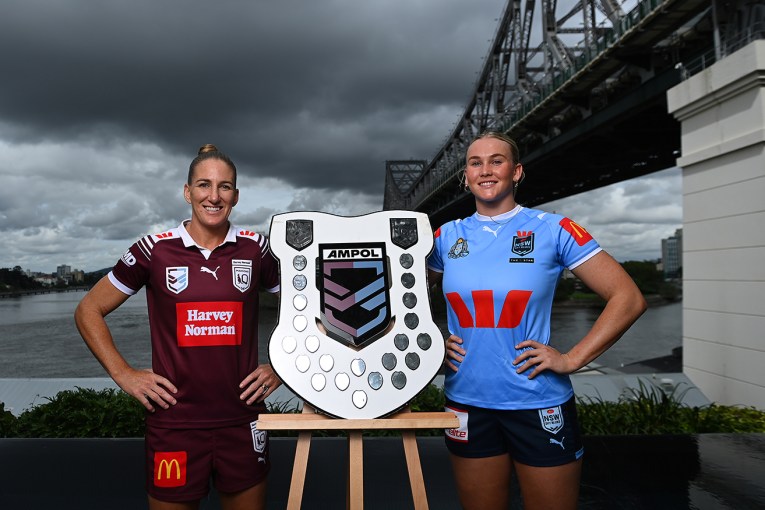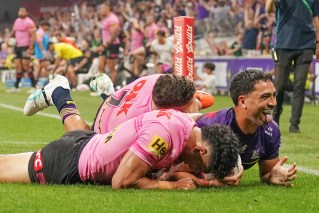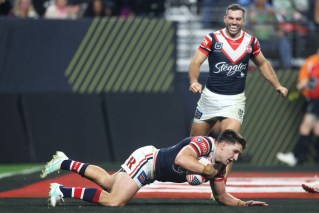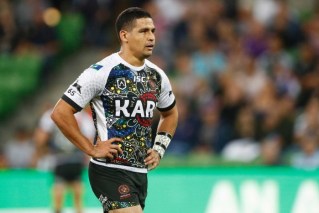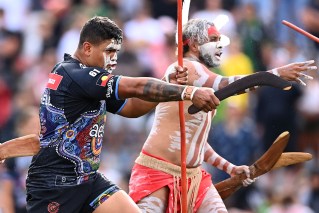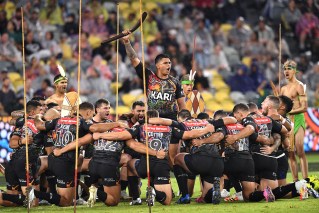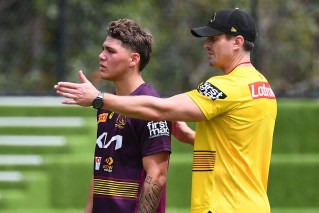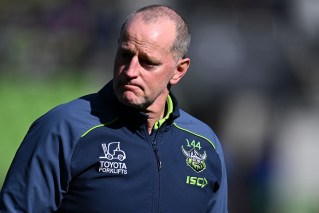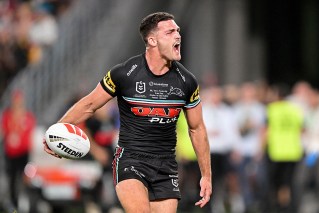Melbourne Storm keen to pursue fan-ownership model in NRL similar to NFL’s Green Bay Packers
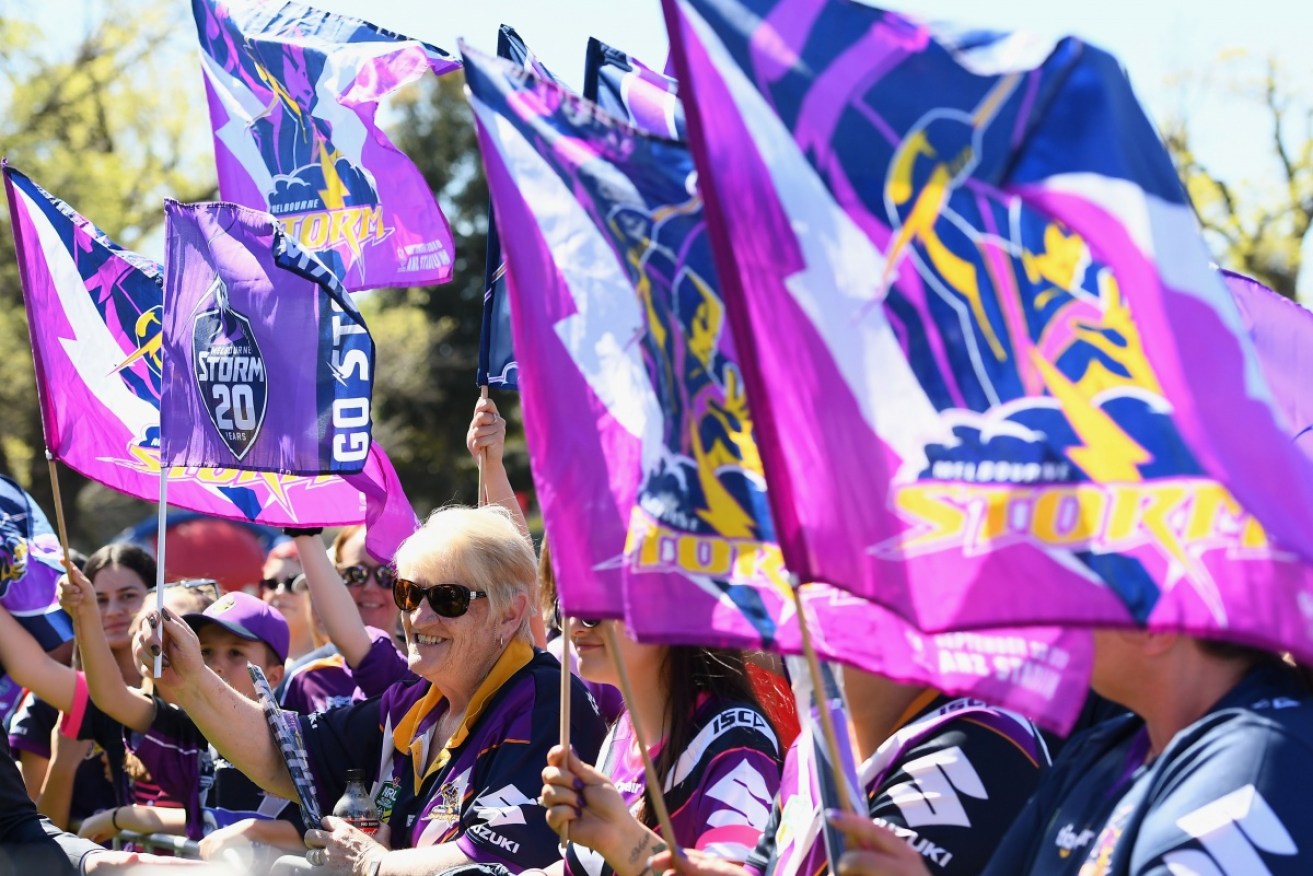
Storm fans are being given the chance to own a stake in the club. Photo: Getty
Melbourne Storm’s major shareholders have announced they are assessing the viability of a fan-ownership model akin to the Green Bay Packers of the NFL.
Storm, which lost the NRL grand final against Sydney Roosters on Sunday, said in a statement: “The concept will give the public the opportunity to invest in the football club and, in turn, become not just fans but shareholders in the Melbourne Storm.”
Storm has one of the highest membership bases of any NRL club, with about 25,000 people signing up this season. It sits behind only the Broncos, Rabbitohs and Eels.
Storm chairman Bart Campbell, who is one of three owners of the club alongside Gerry Ryan and Matt Tripp, is excited about exploring the fan-ownership model.
Ever wanted to own a sports team? Now is your chance! Expressions of interest right here 👉 https://t.co/PINj5d4aId #OurStorm pic.twitter.com/cEOPJp91aM
— Melbourne Storm (@storm) October 3, 2018
“When the owners took control of the Melbourne Storm five years ago, we committed to explore the viability of the fan-ownership model once we had established a sustainable financial platform for further growth,” he said.
“We have been able to achieve that objective with the support of our fans and commercial partners, and now is the time for us to look at the future of our football club.
“We see fan ownership as an innovative way to set the platform to turbo charge the ambitious growth plans we have for the Storm, including doubling our membership to 50,000 by 2023.
“We know this is a complex issue and it will take some time to fully understand the interest and detail of a fan-ownership model. We will keep fans up to date on any decisions that are being considered.”

Storm captain Cameron Smith interacts with fans at a family day on October 1. Photo: Getty
Storm chief executive Dave Donaghy said the proposed ownership model offers more than just pride to the supporters, as it may give the club an advantage in the competitive Melbourne sports marketplace.
“If the interest is there to at some point ideally have fans own Melbourne Storm … we think [it] will provide the Storm with a real competitive advantage over the opposition,” he said.
“It’s quite unique for fans. Obviously in AFL, their fans are incredibly passionate about their club but they can’t actually become owners.
“In this case, we’re Melbourne’s rugby league team and if the interest is there, there will hopefully be a way where fans can buy their way into the Storm.
“If anything else, it’s a really cool initiative we’re looking to explore. Hopefully Melbourne and rugby league fans see an interest in it.”

Green Bay Packers are the only fan-owned team in America’s four major sports. Photo: Getty
What is the Packers’ ownership model?
The Packers, based in the Wisconsin city of Green Bay, work under a system in which they are owned by 361,169 shareholders – representing 5,009,562 shares – according to the club’s website.
The two-time Super Bowl champions have been a publicly owned non-profit corporation since 1923 and are governed by a shareholder-elected board of directors, who appoint a seven-member executive committee.
There have been five stock offerings during their history, with the most recent – ending in 2012 – seeing more than 250,000 new shareholders come on board and in excess of 269,000 shares sold at $US250 ($352) each to earn around $90.3 million.
Shareholders do not gain a dividend on what they invest.
The Packers are permitted to operate outside of NFL ownership rules, which state one owner must own at least a third of the franchise.
The success of the Packers, who have also won numerous conference championships, is remarkable considering Green Bay has a population of just over 105,000.
–ABC
